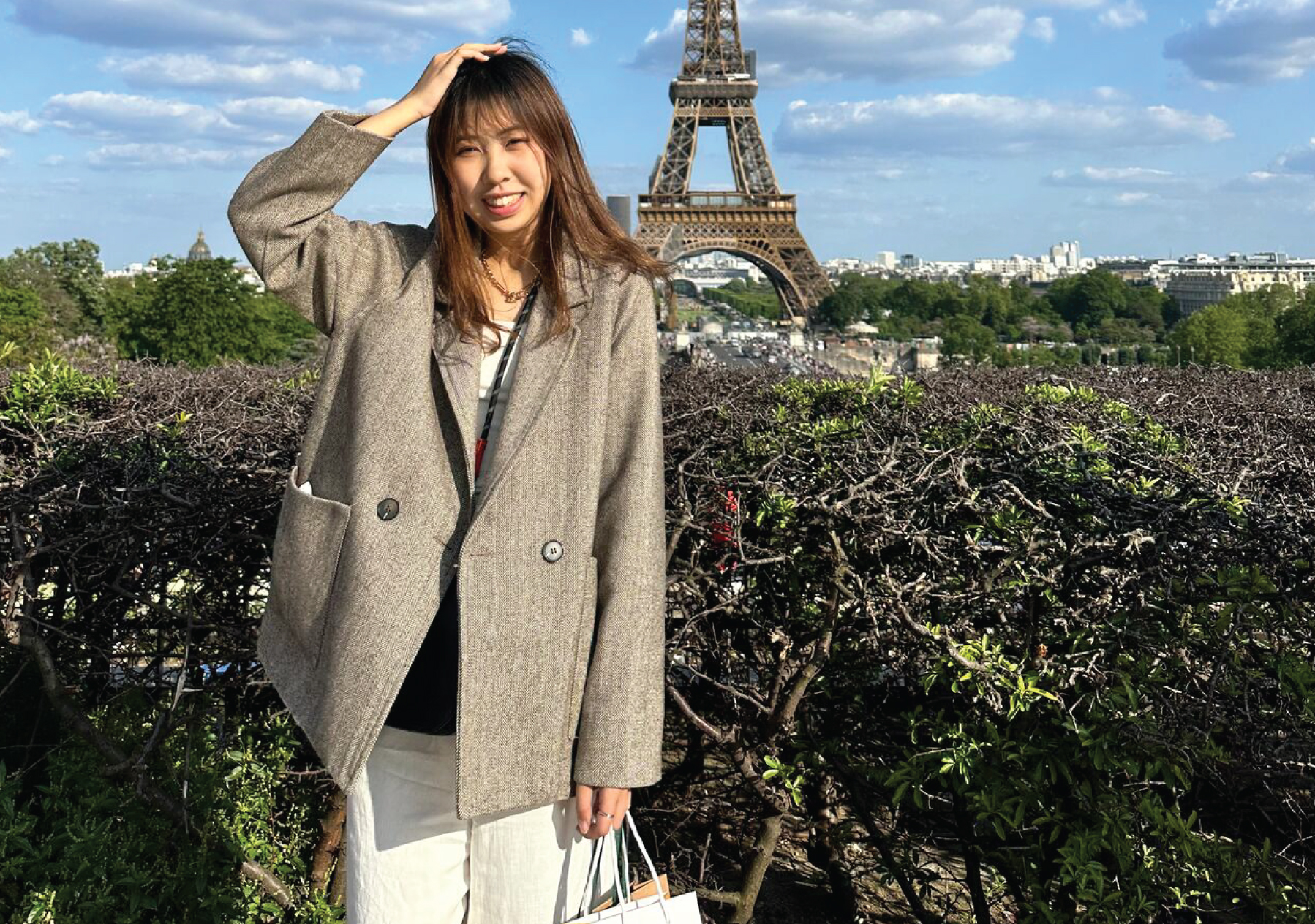The “Trash to Trend (T2T)” project was a transformative learning journey for Jasmine. Motivated by the urgent need to address hotel waste and fast fashion’s environmental impact, her team developed a process to upcycle hotel waste into fashionable treasures. They collaborated with local artists and designers, organizing guest workshops and fashion shows to engage the community and promote sustainability.
Overcoming challenges required extensive research, creative brainstorming, and teamwork. With the guidance of her professor and support from PolyU, Jasmine enhanced her research, problem-solving, and communication skills. This experience not only deepened her understanding of sustainability in hospitality but also inspired her to pursue innovative solutions and lifelong learning in her future career.

Ms. POON, Hoi Lam Jasmine
School of Hotel and Tourism Management
Jasmine’s project began with a thorough identification and categorization of the primary waste streams generated by hotels, such as fabric, glass, plastic, metal, paper, wood, and food. This knowledge is crucial for any sustainability initiative in hospitality, as it allows for targeted waste management strategies. By mapping out these streams, hotels can better track, reduce, and repurpose their waste, leading to more efficient operations and reduced environmental impact.
The project highlights the significant environmental footprint of the hospitality sector, particularly in relation to waste generation and resource consumption. Jasmine’s work demonstrates how hotels can move beyond traditional waste disposal by adopting upcycling and circular economy principles. This not only reduces landfill contributions but also aligns hotel operations with global sustainability goals, enhancing their reputation and appeal to eco-conscious guests
A key insight from the project is the value of integrating sustainability initiatives with community and guest engagement. By organizing interactive workshops and fashion shows, hotels can involve guests, local artists, and students in upcycling activities. This approach transforms sustainability from a back-of-house operation into a memorable guest experience, fostering a sense of community, creativity, and shared responsibility for the environment.
The project was designed to align with the United Nations Sustainable Development Goals (SDGs), particularly those related to responsible consumption, climate action, and ecosystem protection. Jasmine’s team also benchmarked their ideas against global best practices in upcycling and sustainability (e.g., referencing Looptworks). This demonstrates the importance for hotels to stay informed about international standards and successful case studies, ensuring their initiatives are both innovative and credible.
Jasmine significantly enhanced her ability to conduct in-depth research by exploring global waste challenges, fast fashion trends, and the environmental impact of the hospitality industry. She learned to analyze complex data, identify pressing real-world problems, and synthesize information from various sources to develop innovative solutions. This skill is essential for lifelong learning, as it enables individuals to continuously seek out new knowledge and critically evaluate information in any field.
Throughout the project, Jasmine faced the challenge of creating an original and feasible sustainability concept. She developed strong problem-solving skills by brainstorming, mapping out waste streams, and envisioning practical upcycling opportunities. Her ability to think critically and approach challenges from multiple angles allowed her to devise holistic and impactful solutions—an invaluable skill for adapting to new situations and overcoming obstacles in any career or life context.
Jasmine’s journey involved close collaboration with her partner, local artists, and her mentor. She improved her communication skills by sharing ideas, giving and receiving feedback, and working together to turn concepts into actionable plans. Effective teamwork and clear communication are crucial lifelong skills, enabling individuals to work productively with others, resolve conflicts, and achieve common goals.
Developing the T2T project required Jasmine to think creatively—blending sustainability with fashion, community engagement, and public events. She learned to generate and refine original ideas, benchmark best practices, and adapt concepts to local contexts. Lifelong learners benefit greatly from creativity and innovation, as these skills foster adaptability and the ability to generate new solutions in a rapidly changing world.
Jasmine’s team iterated on their project based on feedback from discussions, literature reviews, and benchmarking against global standards. She demonstrated adaptability by refining her ideas and embracing new perspectives. Being open to feedback and willing to adapt is a key lifelong learning skill, as it ensures continuous personal and professional growth in response to changing circumstances and new information.
The pursuit of knowledge is a lifelong journey! To further expand your knowledge and continue your personal and professional growth. Click and explore the following learning resources:
Community Engagement and Guest Experience